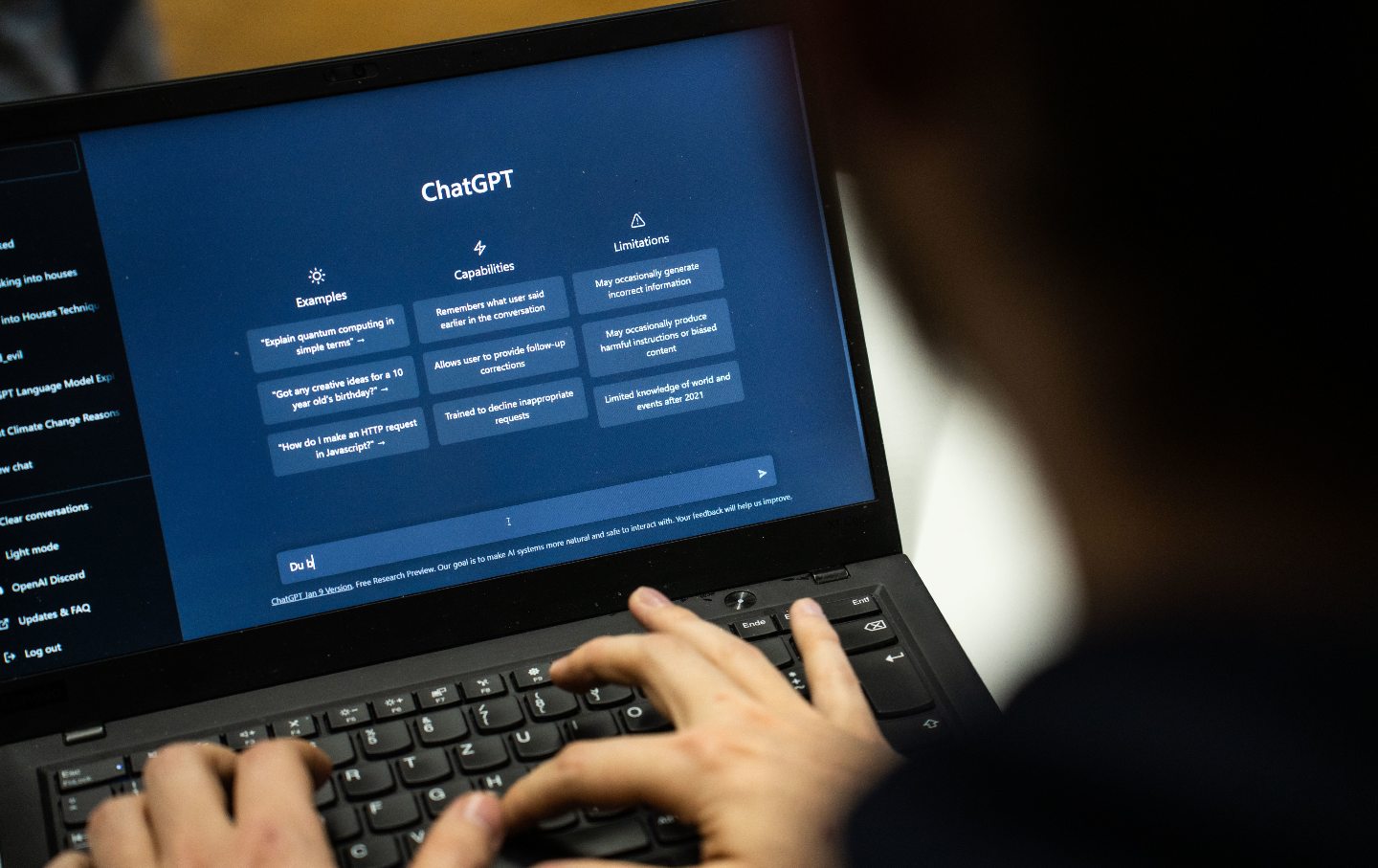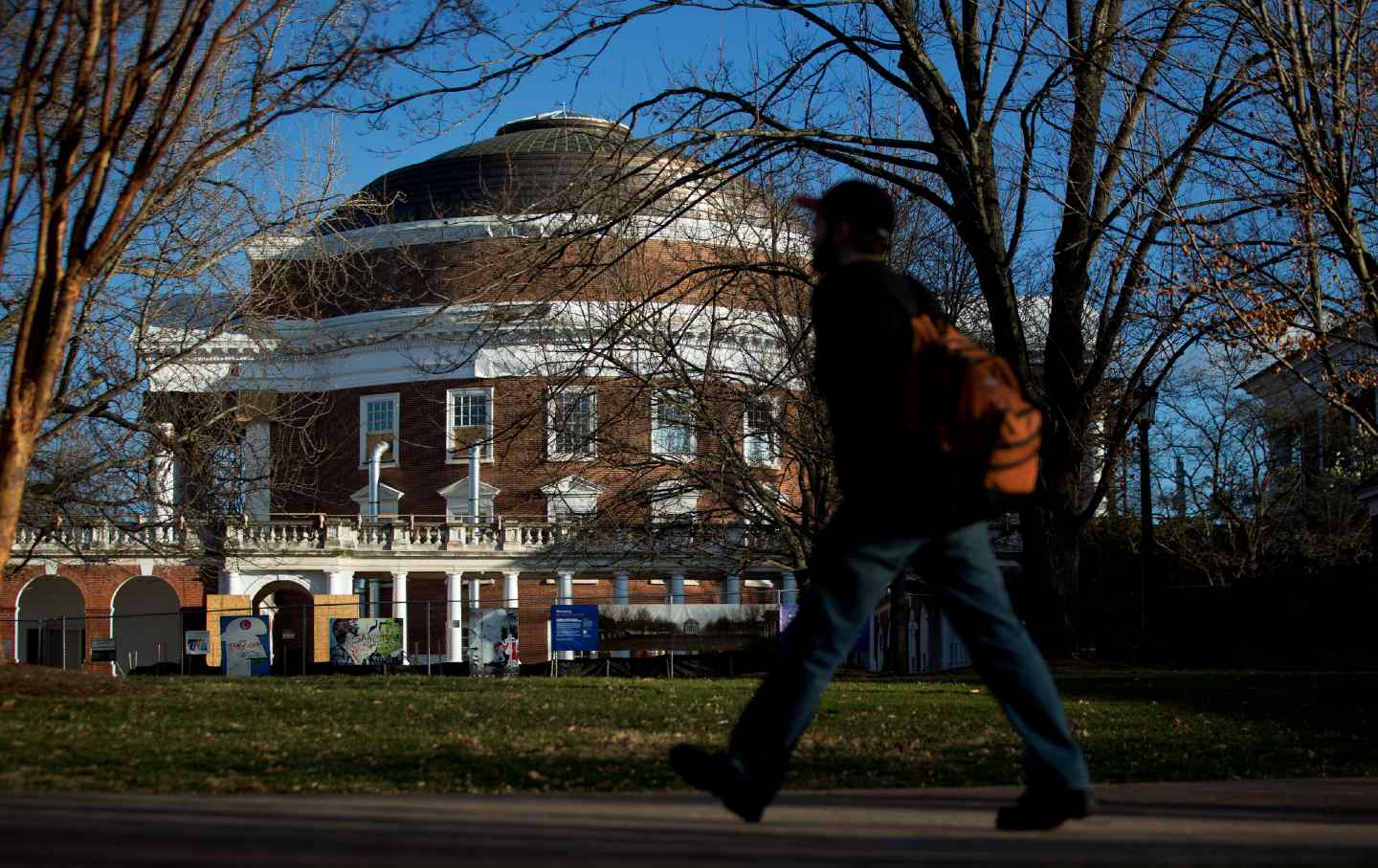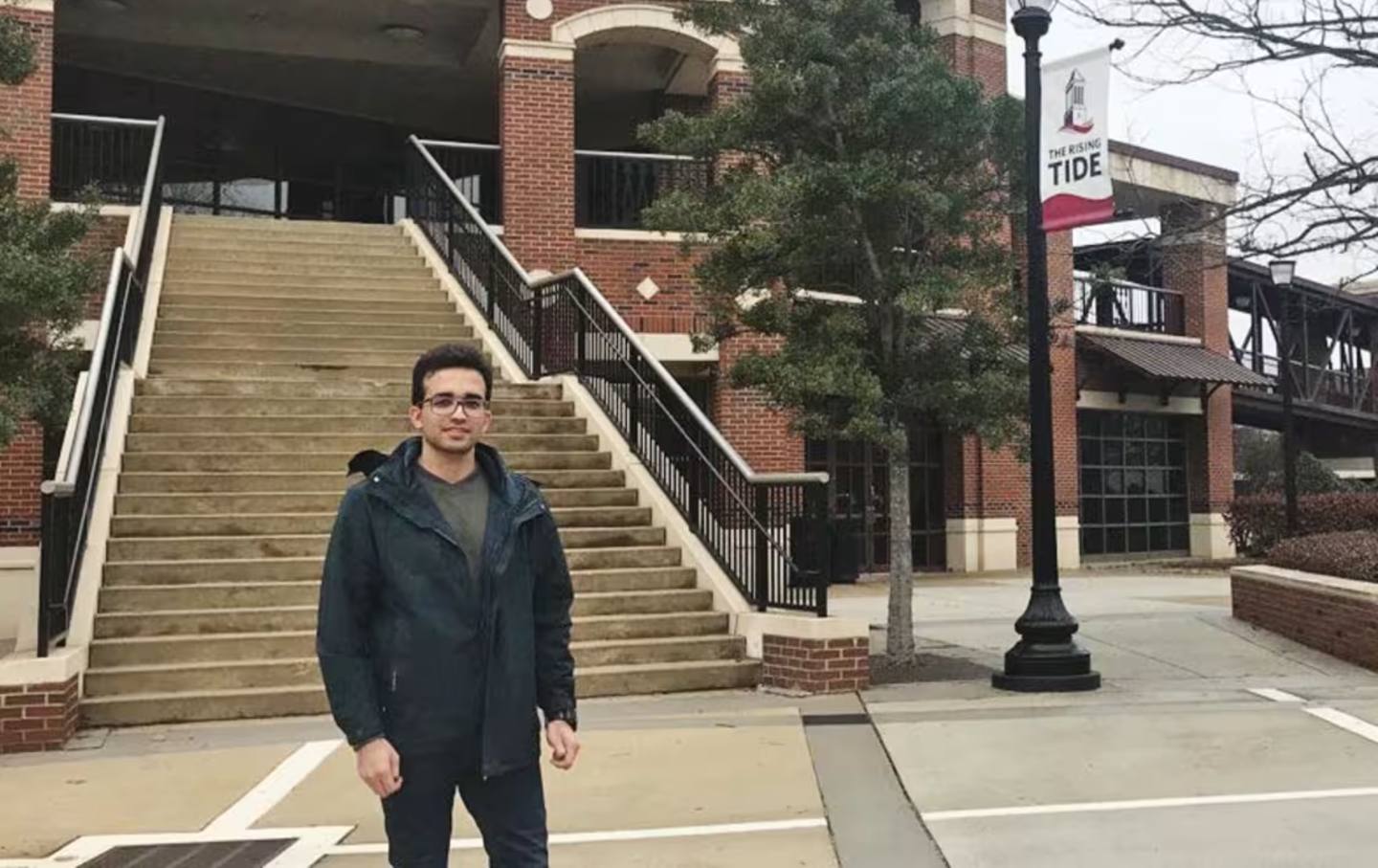AI Is Taking Over College Admissions
For many high school students, artificial intelligence only heightens the anxieties around applying to college. How much of their application will be read by a human?

In 2024, Duke University announced that it would no longer assign a numerical value to undergraduate college admissions essays when scoring an applicant. While the university would still ask students to submit essays, they couldn’t be seen as an accurate reflection of writing ability. “They are not given a numerical rating, but considered as we think holistically about a candidate as a potential member of the Duke community,” Dean of undergraduate admissions Christoph Guttentag told the Duke Chronicle.
The personal-essay component of the college application has long served as a method to better understand a student’s interests, desires and motivations beyond their quantifiable achievements, and was “valuable in helping to identify competitive applicants,” according to Guttentag. But generative artificial intelligence has diminished the value of these essays. “It’s the fastest growth that we’ve seen of any platform and any kind of new technology and AI is not slowing down,” explains Dr. Asim Ali, the executive director of Teaching and Learning Innovation at Auburn University.
Over the last year, an increasing number of students have begun using platforms like ChatGPT and Caktus.ai to help complete their classwork. A recent survey found that ChatGPT was landing more and more high school kids in the principal’s office for plagiarism and academic dishonesty. But the same pattern has emerged in college admissions—allowing applicants to subcontract the writing process.
“It accelerates everything, but it doesn’t necessarily give depth to the learning. It’s taking away from kids’ learning. They’ve got to learn how to write. They’ve got to learn history,” said Catherine Marrs, a college admissions counselor based in North Texas. “The trend that I’m seeing is that kids are less and less ready to go to college.”
A survey done by Inside Higher Ed in September 2023 reported that eight in 10 colleges would use AI in admissions for the 2024 cycle. The same survey found that 70 percent of admissions officers saw AI being used to review recommendation letters and transcripts, with 60 percent saying that it was used to review personal essays. The report was met with skepticism by admissions officer Liam Borst, vice provost for enrollment management at UGA, who posted on X, “There is a zero percent chance admissions offices are using AI to read files.” Yet students are increasingly concerned with how AI can affect their applications.
“It would be hypocritical on the colleges’ hand to prohibit the use of AI for their students when they are using AI,” says Nicholas Segesmen, a high school sophomore from Coronado High School in El Paso Texas. “Admissions offices’ using AI graders feels unfair and impersonal,” said Husam Ramadan, a high school junior at Clovis North High School in Fresno, California. “With so much riding on these essays, I’d want them judged by a human who can comprehend nuance and depth.”
As a high school student, it sometimes feels like college admissions have taken over my life. But the involvement of AI only increases my anxieties: How much of my application will be read by a human?
Generative artificial intelligence has infiltrated every aspect of the application process—including the role of teachers, as more and more educators are reportedly using AI to write student recommendations. These letters are used to understand how students work and interact with their peers and instructors, and while these programs allow teachers to produce recommendations faster, the quality suffers. “These letters are supposed to allow admissions officers to get another accredited individual’s opinion on you as a person,” said Miranda Li, a high school junior at Sylvania Northview High School in Sylvania Ohio. “AI cannot possibly replicate the connection and the familiarity of a genuine letter of recommendation.”
Realistically though, some teachers feel that using generative AI to get a basic structure and building upon it allows the letter to be both genuine and efficient. “I go to ChatGPT, but then I don’t put that directly, because I know these kids better than ChatGPT ever will, right? I go through and I change things around. I make it so that there might be overlaps in the letters, but every letter is going to have something personal,” said Pedro Delgado, a computer science teacher at Young Women’s STEAM Academy in El Paso, Texas.
The recent shifts within admissions offices have students changing strategies during the application process. “I’ve realized I need to be even more diligent about clearly demonstrating my authentic abilities,” said Ramadan. “In-person interviews have become higher priorities for showcasing my knowledge rather than just papers an AI could hypothetically assist with.”
“Students have to make the choice not to use AI,” said admissions counselor Bob Carlton from College Matchpoint. “They have to make a choice that their voice can beat the bot. That they can be better than a classmate who might choose to use AI.” Using AI for essays often leads to poorly written, formulaic, and cliché essay structures that aren’t personable or attractive to admissions offices. “Writing the essay yourself, while it may be time-consuming, gives you the time and the power to write an essay that will blow the college admissions officers away,” said Li.
Popular
“swipe left below to view more authors”Swipe →Although detection systems like Persona and Phasely.Ai claim to find text that is generated by an AI writing tool, they are still far from entirely accurate. Faults within detection systems and the increasing concern of admissions officers about the usage of AI leave high school students worried that their essays could also be falsely classified as AI-generated.
“Admissions officers are more weary than ever,” said Amelia Ramirez, a high school sophomore from New York. “That translates into students who value sincerity. The worry is that AI detectors may detect a student’s work to be loaded with AI when it was truthfully written by hand. It is a worry my peers have expressed, and something I’ve seen others fall victim to online.”
“If you’re going to pass a rule that says don’t use generative AI, there’s no way to enforce that. So then it becomes a way of creating a disadvantage for honest people,” said Dr. Ali. “So I think the alternative is to change the way we do the admissions process. If it uses an essay, we’ve got to get more creative.”
Without changes like the refinement of the essay at Duke University or mandatory additions to the application process—like interviews and spoken recommendations that make the admissions process more holistic—honest students will suffer. And without clear guidelines that acknowledge AI usage and explain how and when to use it correctly, the admissions process becomes more taxing for all students. “One of the top five stressors for kids is the college admissions process,” said Carlton. “AI for many kids and parents, just introduces another area of uncertainty, another area of fear.”








